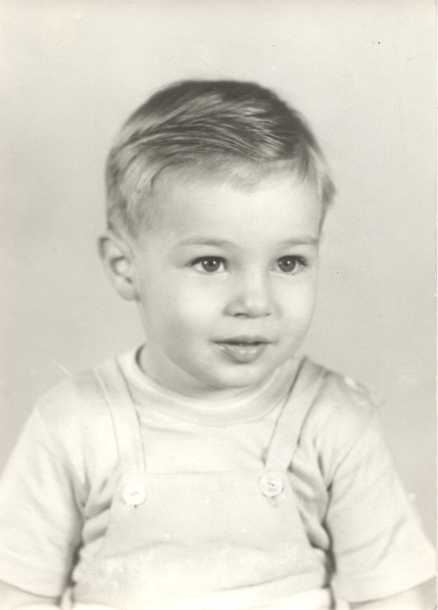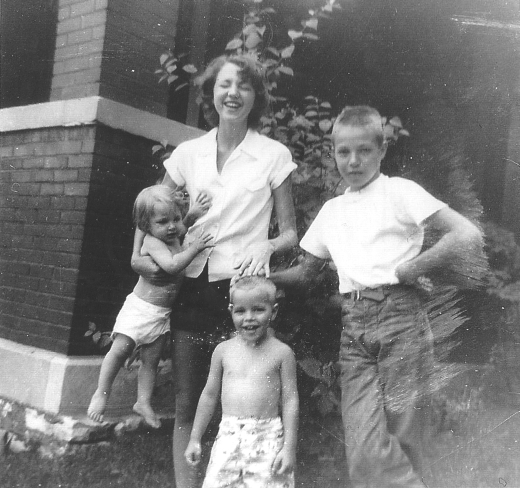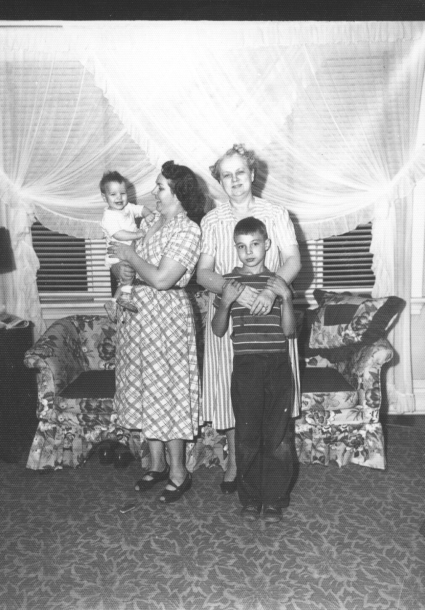Tropical Heat (29 page)
Authors: John Lutz

Carver knew who it was; it would have been unwise to stir from cover so soon after the night before, with so many law enforcement officers still in the area.
The door opened and Willis stepped out onto the porch.
He let the screen door slam shut behind him; the sound was like a rifle shot that resonated briefly and then was absorbed by the calm swamp.
Carver stared at the man, the myth brought down to life-size. Willis was like his photograph, handsome in an ordinary, even-featured way that served him well in his illicit work. He was wearing faded Levi’s, a white dress shirt with the sleeves rolled up, and, incongruously, dusty black wingtip shoes. The dandy adapting to his new and temporary environment; evolution in the swamp. Willis didn’t look directly at Edwina. Carver was aware of tension flowing from her like an electric force.
“Any of this true?” Verna asked.
“Some of it,” Willis said. “Not the part that means I don’t love you.”
Carver watched Verna as her mind grappled with yet another disillusionment. Life was like that: illusion, delusion, deception, self-deception, worlds and castles constructed of our personal perceptions, masquerading as reality until something interfered. Verna’s magic kingdom had been built here before Disney’s, and now Carver was tugging at the cornerstone of her castle.
Willis reached out for the shotgun, then withdrew his hand as two more cars flashed into view through the palmetto trees and parked at the end of the gravel drive.
Chief Armont and a uniformed cop got out of one of the cars. Another uniformed cop, the going-to-fat young one who’d stopped Carver on the road the night before, climbed out of the other. He looked more puzzled than official today.
Verna raised the shotgun, aimed it directly at Carver. “You folks stay right there by your cars,” she said. “Somebody dies otherwise.”
Armont stood still. He floated a hand upward to signal his men to do the same.
Verna nodded toward Edwina. “This your former wife, Willis?”
“Of course not. She’s a woman who used to work where I worked. She thought she was in love with me.” He barked a sharp, incredulous laugh, as if he were amazed at the audacity of those two people who had turned up there where they didn’t belong. “I never loved her. I never lived with her.”
“He speaking the truth?” Verna asked Edwina.
Edwina said nothing. The front of her blouse was trembling, rising and falling rapidly.
“He’s murdered to try to get this land,” Carver said to Verna. “He’s even murdered
on
this land—a naturalist called Mackenzie who was cataloging wildlife for the Disney corporation.”
Willis shook his head, almost in amusement. “Another lie.”
Carver blinked perspiration from his eyes. Even the breeze was warm and fetid, the swamp breathing.
Willis began shifting his weight from leg to leg. He was getting nervous; his mind must have been darting around like a wasp in a jar, searching for openings, angles that might lead to escape. Carver wondered if Willis, there in the cabin, had heard or seen any of what had gone on in the swamp the night before. The lights might have been visible through the trees, and the wail of the siren must have carried for miles. But then it wouldn’t have mattered much to him; none of it actually involved him. They’d only thought it had. Just as he’d planned.
Chief Armont’s voice boomed out. “I think you oughta put the gun down, Verna, and we can talk.”
She ignored him.
“Verna!”
She moved the shotgun barrel almost imperceptibly to take in Armont and his men. The message got across. She was capable and willing. Armont knew her; he kept quiet, waiting for it all to play out. The sky darkened, and the insects in the swamp became silent. A few drops of rain fell.
“The law want you, Willis?” Verna asked, not looking away from Carver and Edwina.
“The law wants me,” Willis said. “But not for what Carver says. What he says is a lie.”
“This isn’t your former wife? You ain’t just using me?”
“No, no! For Christ’s sake, no, Verna!”
A good actor, Carver thought. A great actor.
“He’s the one who’s lying,” Carver said to Verna. “He doesn’t love you.” He knew he didn’t sound nearly as convincing as Willis.
“He’s a gimpy private eye who peeks through keyholes,” Willis said, pointing at Carver, managing disdain in the gesture.
“And her?” Verna asked, moving the shotgun’s twin barrels in the direction of Edwina.
“She’d say whatever he told her.”
The low thunder was rolling closer now. Carver watched the raindrops spot the bare ground in light patterns determined by breezes high above. They made a faint pattering sound on the leaves and hard earth.
Verna raised the shotgun a few inches and held it with fresh purpose. She’d made up her mind: Willis. His luck ran on.
“Go on back along the path behind the house,” she said to Willis, not looking at him. “You’ll come to a big live oak with lots of old hatchet marks in the trunk, cuts I made when I was a girl. Make a right turn there, just the other side of the tree, and go through the swamp. In about a hundred feet you’ll be on an overgrown dirt road that poachers used to travel. You wait right there and I’ll pick you up in the truck.” She moved her head toward the rusty vintage Ford pickup. “I want to talk some to Chief Armont.”
Willis looked at the truck. “I couldn’t get it started yesterday. Will it run?”
“It’ll run. And I’ll see they don’t follow us.”
Willis obviously didn’t fancy the idea. But he did like the notion of getting away from there as quickly as possible. He leaned close to Verna, whispered something in her ear, then jumped down off the porch and jogged around behind the cabin. He had a loose-jointed, athletic way of running. Boyish.
Verna said nothing, swept the long shotgun slowly from side to side to make it clear she might fire at anyone who moved. The rain, still light, picked up a bit. Lightning played among the clouds in the west, getting closer.
“Time to talk some sense now, Verna . . .” Armont began, urging her to speak to him.
But she didn’t have anything to say, and a quick, chopping motion with the shotgun’s twin barrels told Armont he didn’t have anything to say, either. Verna waggled the barrels from side to side. No one was to speak.
When several minutes had passed, Willis began to shout.
At first Carver couldn’t understand what he was screaming. Then, when he did understand, he lifted his cane from the ground, reset it, and took a step forward.
Verna tightened her grip on the shotgun. Carver stopped and stood still again. Armont and his men were poised tensely, but they hadn’t moved.
The screams became louder, higher-pitched, like a woman’s screams.
Verna stared at Edwina, who stared back. Their stoic expressions revealed nothing, but Carver knew something was happening between them; he could actually feel its subtle vibrancy. It was like an understanding beyond words, between sisters. Maybe it could have passed between them only there, in the deep swamp.
Willis began screaming Verna’s name. Then Edwina’s.
The two last, maimed women in his life stood motionless and unfeeling, statues in the rain.
Carver shivered. He held tight to the crook of his cane with both hands and bore his weight down on it to steady himself.
Willis screamed Edwina’s name last.
Three times.
Pleading.
In tearing, banshee wails of horror.
Then suddenly he was quiet. Sunk beneath the quicksand where Verna had directed him. The abrupt silence rolled from the swamp and settled heavily over the clearing.
Verna slowly lowered the shotgun and bowed her head.
Carver heard footsteps behind him, then Armont and his men passed him at a fast walk, moving in on Verna.
Armont gently removed the gun from her hands, then held her arm tenderly, like a concerned lover, and led her into the house.
The rainfall became heavy, steady.
T
HE STORM WAS STILL
attacking the swamp, Mother Nature miffed, hurling down lightning bolts and sending sheets of rain sweeping across the flat road, when Carver, with Edwina beside him, drove from Solarville and turned onto the main highway.
Armont had taken charge and sorted things out with a finesse that surprised Carver. The chief was tough and a pro, but he was tuned to human sensitivities. A good man in a bad job.
By late that afternoon, just before Carver and Edwina left Solarville, word had come that Sam Cahill had been stopped by state troopers on Interstate 75 in his red Corvette. When told that Willis Eiler was dead, he demanded legal counsel and became closemouthed. Most of Ernie Franks’s money was in a suitcase in the car’s trunk.
There was a bad exchange rate on that money; it had cost far more than it bought.
The rain had slacked off to a mist that the sun was working to burn away, when Carver glanced sideways at Edwina and turned the Olds north on Route 1, toward home, his place on the edge of the sea. He was sure that they were finally and in every way free of Willis, that the obsession had ended.
But Carver didn’t go to his place. Instead they drove to Del Moray. To her place.
Their place.
In the middle of the night she called him Willis.
John Lutz is one of the foremost voices in contemporary hard-boiled fiction.
First published in
Alfred Hitchcock’s Mystery Magazine
in 1966, Lutz has written dozens of novels and over 250 short stories in the last four decades. His earliest success came with the Alo Nudger series, set in his hometown of St. Louis. A meek private detective, Nudger swills antacid instead of whiskey, and his greatest nemesis is his run-down Volkswagen. In his offices, permeated by the smell of the downstairs donut shop, he spends his time clipping coupons and studying baseball trivia. Though not a tough guy, he gets results. Lutz continued the series through eleven novels and over a dozen short stories, one of which—“Ride the Lightning”—won an Edgar Award for best story in 1986.
Lutz’s next big success also came in 1986, when he published
Tropical Heat
, the first Fred Carver mystery. The ensuing series took Lutz into darker territory, as he invented an Orlando cop forced to retire by a bullet that permanently disabled his left knee. Hobbled by injury and cynicism, he begins a career as a private detective, following low-lifes and beautiful women all over sunny, deadly Florida. In ten years Lutz wrote ten Carver novels, among them
Scorcher
(1987),
Bloodfire
(1991), and
Lightning
(1996), and as a whole they form a gut-wrenching depiction of the underbelly of the Sunshine State. Meanwhile, he also wrote
Dancing with the Dead
(1992), in which a serial killer targets ballroom dancers.
In 1992 his novel
SWF Seeks Same
was adapted for the screen as
Single White Female
, starring Bridget Fonda and Jennifer Jason Leigh. His novel
The Ex
was made into an HBO film for which Lutz co-wrote the screenplay. In 2001 his book
The Night Caller
inaugurated a new series of novels about ex-NYPD cops who hunt serial killers on the streets of New York City, and with
Darker Than Night
(2004) he introduced Frank Quinn, whose own series has yielded five books, the most recent being
Mister X
(2010).
Lutz is a former president of the Mystery Writers of America, and his many awards include Shamus Awards for
Kiss
and “Ride the Lightning,” and lifetime achievement awards from the Short Mystery Fiction Society and the Private Eye Writers of America. He lives in St. Louis.

A two-year old Lutz, photographed in 1941. The photograph was taken by Lutz’s father, Jack Lutz, who was a local photographer out of downtown St. Louis.

A young Lutz with his little brother, Jim, and sisters, Jacqui and Janie.
